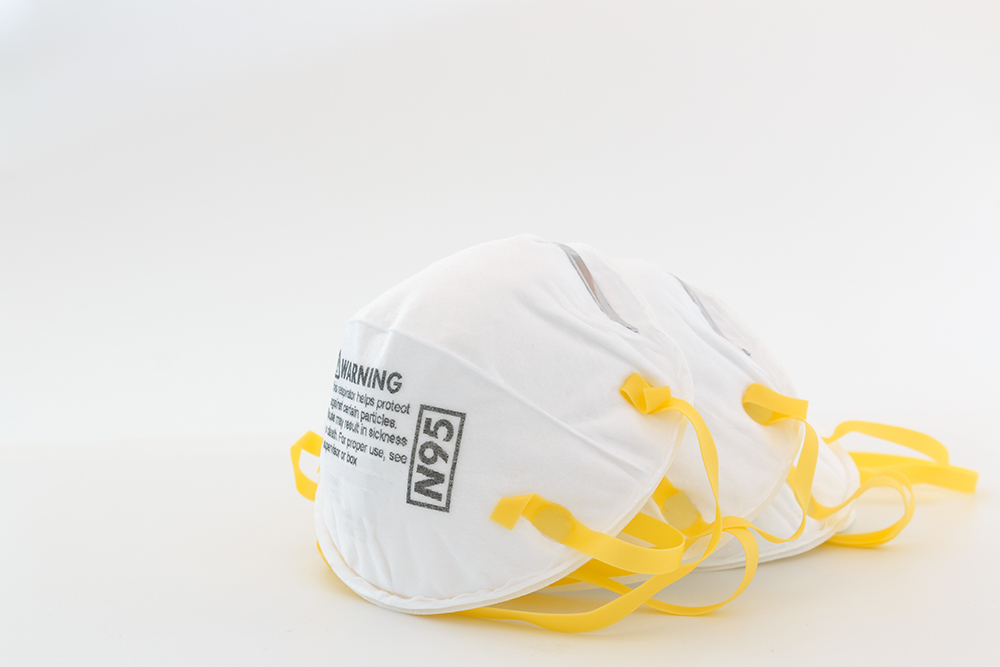A N95 Respirator Masks reduces the risk of
contagion of COVID-19. More effective than previously thought: a study found
that you only have a 7% chance of contracting coronavirus if you use the Face Shield
Respirator properly. Experts say that social distancing and
covering the eyes are also decisive to reduce risk.
How effective is the Face Shield Respirator against the
coronavirus?
That is the question
that has been answered for the first time, thanks to a workshop led by the
McMaster University of Canada. The study determined that the risk of
contracting the virus is 7% when using the Face Shield Respirator,
versus 17% without the element.
Although the Surgical Respirator
mask has become an everyday item during the pandemic and has been made
mandatory in many countries, the research published is the quantitative effort
to measure its effectiveness. Let us remember that at the beginning of the
pandemic, some experts advised against its massive use.
To reach this
conclusion, an international team reviewed more than 170 observational studies
from 16 different countries, where aspects such as distance measures, Surgical Respirator
masks and eye protection were evaluated to prevent transmission between
infected and nearby patients. Thus, they were grouped into 44 studies with more
than 25 thousand participants, of which seven were from COVID-19, six from SARS
and 11 from MERS.
The academic from the
department of internal medicine of the UC School of Medicine was one of the
studies. The study concluded the use of Face Shield Respirator was effective, but much less than we
thought. And in this context, the WHO recommendation not to use them routinely
was justified. The importance of the study is that it shows that a Face Shield
Respirator is more effective than we thought. That is why it
has generated so much excitement, because, perhaps, it is a measure that is
being underused.
It should be noted that
effectiveness is also associated with the type of element used. Thus, an N95 or
Surgical
Respirator with between 12 and 16 layers of cotton will give
better results.
Efficacy of N95 Filter Masks against
FFP2
The N95 Surgical Respirator mask has a 95% particle filtering capacity, while the FFP2 masks
have a 92% filtering capacity.
Filtering masks, also
called Surgical Respirators, are personal protection devices worn
on the face or head and cover the nose and mouth.
Filter masks are
specially designed to provide respiratory protection. The N95 filter creates an
airtight seal against the skin that prevents dangerous particles such as gases,
vapors, aerosols, and infectious agents.
Before using a fit, a
test is necessary to ensure a proper face seal is achieved. When properly
fitted and the user inhales, there is minimal leakage around the edges of the
respirator. This means that almost all the air is directed through the filter
media, thus ensuring that one does not inhale hazardous airborne particles.
The N95 Surgical Respirator
mask is certified by the National Institute for Occupational Safety and Health
(NIOSH) of the United States of America with a filtering capacity of 95%.
Triple combination: Surgical Respirator mask, Face Shield Respirator and eyepiece
As emphasized many
times, the spread of SARS-CoV2 is through infected aerosols or
"droplets" that we unintentionally spread by coughing, sneezing or
talking. For this reason, the research determined two other factors that are
decisive and that, combined, increase our chances of not contracting the virus.
According to the review,
maintaining a meter of social distance from other people reduces the risk of
contagion to 2.6%. While not considering the necessary physical separation
raises that figure to 13%.
Finally, the risk of
contagion is 16% if you do not use a Face Shield Respirator as well as eye protector, such as
glasses or goggles. The figure decreases ten percentage points if we add these
types of elements when it comes to prevention.
Thus, the best
conclusion is to combine these three variables: Surgical Respirator
masks, social distance, and eye coverage. What's more? The risks of contracting
COVID-19 are reduced to 2%, even in a situation of high danger.
These are measures that
add to protection, but do not guarantee to avoid contagion. What one would not
want is for people to take the effectiveness of the Surgical Respirator
mask as a guarantee that they will not get it.


0 Comments